Fotografía: Thelma Datter en Wikimedia Commons.
El Teatro del Pueblo es hoy un centro cultural poco conocido. Adosado al Mercado Abelardo Rodríguez, los visitantes de los conocidos murales que allí se encuentran deberían visitar también el Teatro en el lado oeste del mercado.
El teatro funciona como muchos centros culturales y artísticos de Ciudad de México. La amplia gama de talleres de artesanía y arte se inclina un poco más hacia la escenografía y la carpintería. De hecho, el escenario acoge regularmente presentaciones de libros, conferencias, películas y producciones escénicas.
El teatro forma parte del complejo del mercado Abelardo L. Rodríguez, famoso por haber incluido una guardería, una biblioteca y este teatro. El conjunto es obra del arquitecto Antonio Muñoz. Comenzó este proyecto justo después de su trabajo en el enorme Centro Escolar Revolución. Todos ellos se encuentran entre los edificios más ambiciosos de la década de 1930. Muñoz siguió dos años más tarde, en 1936, con el edificio de la Suprema Corte en la esquina sureste del Zócalo.
Aquí incluyó todo tipo de estilos arquitectónicos. Encontrarás elementos neocoloniales junto al neoclásico, un fascinante art decó y también belle epoque. El complejo completo incluye un mercado de dos pisos y el teatro en 12,000 metros cuadrados de construcción. Se construyó en el emplazamiento del antiguo Monasterio de Loreto y en las huertas del Colegio de San Pedro y San Pablo. El conjunto se inauguró en 1934.
El nombre de Teatro del Pueblo refleja el espíritu de la época posterior a la Revolución Mexicana. Muchas ideas y visiones socialistas similares decoran los murales. Entre ellos están los pintados por Antonio Pujol, Ángel Bracho, Pablo O’Higgins e Isamu Naguchitell. Todos ellos fueron alumnos de Diego Rivera y también son responsables de los que hay en el vestíbulo del mercado anexo. Con un claro rechazo al fascismo, el racismo y la explotación laboral, muchas de las ideas son más pertinentes hoy que cuando se pintaron.
La decoración del escenario del teatro incluye magníficos mosaicos de azulejos de Talavera del artista J. Campoz W. Estos aluden a los famosos dramaturgos, e incluyen múltiples figuras humanas y decenas de animales también. Curiosamente de J. Campoz W., la historia no nos dice casi nada. Una teoría sugiere una posible conexión con el teatro, más que una tutela con Rivera. (Todos los alumnos de Rivera firmaron contratos por su trabajo en el proyecto y aún se tiene constancia de ellos). Los pintores de la época, incluido el propio Rivera, solían diseñar y pintar escenografías teatrales y escénicas. Pero por los magníficos murales que comienzan en el vestíbulo y continúan por todo el Teatro del Pueblo, J. Campoz W. está casi perdido en un pasado muy curioso.
Horario: De lunes a domingo de 9:00 a 20:00 horas.
 teatrodelpueblo.centro@gmail.com
teatrodelpueblo.centro@gmail.com
 +52 (55) 4335 8036
+52 (55) 4335 8036
 http://teatrodelpueblocentro.jimdo.com/
http://teatrodelpueblocentro.jimdo.com/
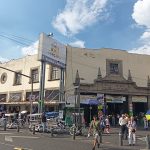
Cercano a 0.07 kms.
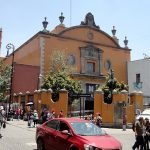
Cercano a 0.07 kms.
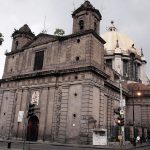
Cercano a 0.11 kms.
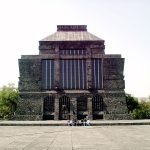
Pensado como una parte de la Ciudad de las Artes, el Museo Anahuacalli es un espacio mucho más contemporáneo de lo que puedas imaginar.

Uno de los secretos mejor guardados de Xochimilco, el Museo Dolores Olmedo es espacioso, acogedor y está abierto al público.

Teatro de artes de 1953 y un importante punto de referencia en la ciudad...
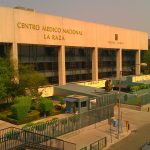
Uno de los centros médicos más importantes de la Ciudad de México....